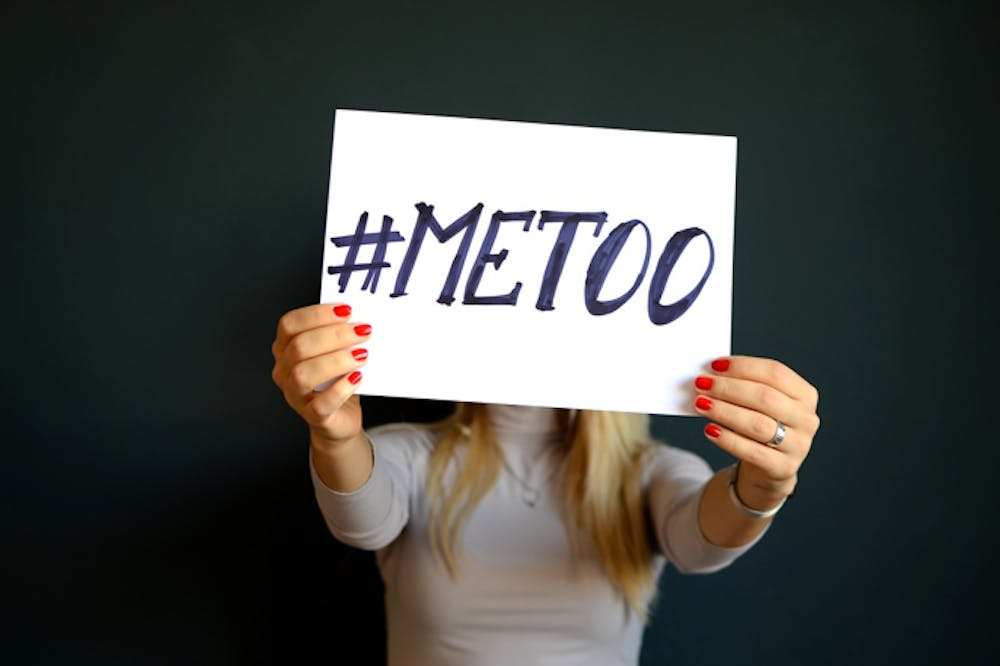When accusations against Harvey Weinstein were first brought to light this October, it seemed like another stand-alone case. After the media cycle moved on to another story, the film industry would return to its normal ways, waiting until the next Weinstein was revealed.
This has been the expected pattern. We live in a culture that has permitted men like Harvey Weinstein to exist, to take advantage of their positions of power. Eventually, Weinstein would just be another name on a list of powerful men who would get a pittance of a punishment for his egregious crimes.
But, this time, the story seems to have changed.
Weinstein’s case has spread the seeds of change within the media industry. Executives in companies including Amazon, Vox, and Nickelodeon have either resigned or been fired due to sexual assault allegations. As more victims step out, this toxic system of power is slowly crumbling.
But, the film industry is not an exception to the norm. The next step we have to take is seeing the same reform in other professional fields — one being academia.
Even though it exists outside of public scrutiny, the same endemic issues with sexual abuse are echoed in academia. It almost seems unlikely that the very halls that boast tenets of egalitarianism and intellectual discourse could also house such blatant examples of disrespect. Yet, the many cases of sexual assault raised against faculty members at institutions including the University of California, Berkeley, Columbia University, and the University of Rochester suggest otherwise.
Beyond the fact that it is a male-dominated field, academia also contains a strict hierarchy that runs from tenured professors to graduate students, forming a structure of power imbalance where sexual abuse can take root.
In May of last year, the sudden departure of two female graduate students from the German department at the University prompted a town hall meeting to discuss inclusivity. According The Prince's coverage of an anonymous survey circulated at the town hall, female graduate students had reported hearing comments about their appearances in addition to “uncomfortable touching from certain faculty and emeritus faculty.”

This problem is not sequestered to the German department. Results from the We Speak survey, conducted by the University in 2017, state that approximately 8% of graduate women experienced sexual harassment during the 2016-2017 academic year. Furthermore, almost a quarter of these incidents were reported to have involve a co-worker, professor, staff member, or postdoc.
Even though cases of sexual harassment are evidently prevalent within academia, the perpetrators are usually not apprehended. Victims — especially graduate students and early career researchers — are unlikely to speak out, fearing that it may ruin any opportunities for career advancement. As one of the graduate students at Princeton recalls, one of her professors told her before the town hall meeting that “speaking out will only do you harm.”
In a competitive environment like academia, the choice to remain silent is completely rational, especially considering that universities have a long track record of letting these offenders off easily. The assailants are swaddled by their power, protected by the promising nature of their careers, whereas the victims are often treated as expendable, with nothing to cushion their fall.
At the University of California, Berkeley, Tyann Sorrell sued her boss, Dean Sujit Choudry, on accounts of sexual harassment, after suffering through inappropriate touches and advances on an almost daily basis. The settlement allows Choudry to retain his faculty position until 2018 when he will voluntarily resign as a faculty member “in good standing.” Rulings like this prioritize protecting the careers and reputations of the perpetrators over bringing justice to the victims

Thus, when the only justice you may get is watching your attacker voluntarily resign or slip comfortably into a sabbatical, sacrificing your career does not seem worthwhile. Yet, doing so permits their assaulter to walk free, and usually without any consequences.
Within this toxic culture that has allowed harassers to continue their work while victims suffer for misdemeanors they did not commit, we need reform. As we have learned from watching the Weinstein case unfold, the quickest way we can change this culture of sexual assault is by having victims speak up. But, to make this happen, we have to make sure they feel comfortable in doing so.
The first place to start is promising greater justice for victims. Universities have to ensure that those found guilty under Title IX investigations receive punishments equal to their actions. They must be clear that there is a zero-tolerance policy for sexual harassment, not only because it hinders work productivity, but also on the grounds that sexual harassment is just not acceptable.
We have failed these women (and men), but we cannot continue doing so for any longer. These stories —both the ones that have been shared and the ones that long have been kept secret — deserve to be heard. Much like the film industry has reacted in light of Harvey Weinstein, it is time for academia to change its narrative.
Dora Zhao is a first-year student from Newtown, Pa. She can be reached at dorothyzhao@princeton.edu.








